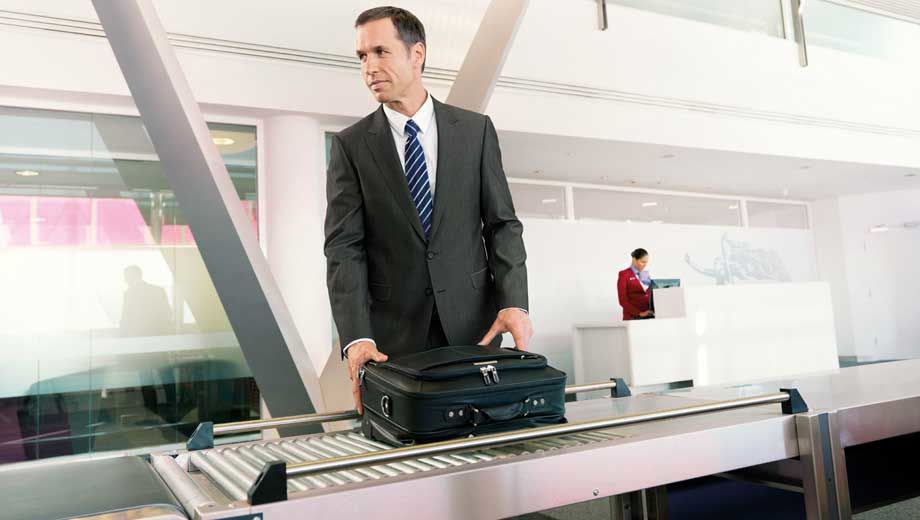It's always a good time to find new clients, suppliers and partners. That's why travel remains a great way to help your business really take off – provided you’re willing to leave the office and do likewise.
Here are six 'pro tips' for first-time business travellers.
Plan ahead
One of the cornerstones of business is careful planning, and that applies as much to travel as anything else.
It’s not just because you tend to get the best rates by looking ahead and booking ahead.
A bit of investigation helps avoid peak periods – not just school holidays in Australia but local holidays and festivals, major sporting events and other situations which could result in fewer airline seats and hotel rooms and thus drive up the price accordingly.
The more contacts you need to chase overseas and the more involved those visits will be – which might include a tour of a factory or other facility – the more prep work needs to be done and the longer lead-time to set things up to maximise your own time on the ground.
Beyond that, you need to plan for your absence from the office and make sure that everything flows smoothly while you’re away. Ideally this means scheduling the milestone events in any current project or future pitch to be well clear of your trip.
The easiest way to do this is to determine your travel period well in advance, mark that in your calendar and treat it almost as if you were on holiday for that week or two.
But the trip isn’t just a hard-start affair – you can’t just clock off as per usual at 6pm on Tuesday and catch the 10am flight on Wednesday.
The week before your trip will likely involve to-and-fro in finalising arrangements, swotting up on your customers and prospective clients, going through proposals and naturally handling those unexpected things which simply crop up.
That means allowing for this week to be ‘less productive’, at least by your normal standards, as you prep for your trip.
The long game
So much of business hinges on relationships, but I’ve seen many instances where someone jets into a city and expects to fly out a few days later with a folder full of contracts.
That doesn’t happen, especially in Asia – which is of course our major trading partner.
Set realistic expectations for what a ‘successful’ trip will be. It might be inking just one contract but establishing or even strengthening relationships with potential new suppliers.
If it’s your first visit to a particular country, go to the trouble to learn a little about the culture – and that includes the culture of how they do business. Our Western way – our uniquely laid-back Aussie way – isn’t the only way the world of commerce works.
Where to stay
If most of your clients work from offices in the middle of the CBD, a hotel in the middle of the city is the obvious choice. Likewise if it’s appropriate for them to visit you rather than you calling upon them, in order to save your time.
But if you’ll be the one going from A to B to C – and especially if your customers aren’t clustered around a single area – do your best to plan a schedule that lets you spend more time in meetings than in taxis.
This could mean looking for a hotel that’s in a less obvious downtown location.
If clients will be visiting you, consider upgrading to a room with access to the hotel's executive lounge.
If you'd rather meet in private or have lots of product to demonstrate, look into a serviced apartment or ‘apartment-hotel’.
These give you a separate bedroom and living quarters so you can turn the living space into your office, presentation and demonstration area while keeping the ‘after hours’ part of your trip to yourself.
Many travellers who are on the ground for more than a week pefer to stay in an apartment rather than the same close-quartered hotel room.
A significant benefit of an apartment-hotel is the inclusion of a kitchenette so you can prepare some of your own meals. That might be as simple as some muesli, toast and coffee in the morning – but it’ll be far cheaper than breakfasting at a hotel restaurant.
Getting the best deal on your hotel
There’s always been plenty of competition in the hotel market, and this has been amped up by the Internet (God bless its little dot-com socks).
It’s not just about the obvious ability to comparison-shop between hotels and their assorted advance deals and packages but sites like Wotif.com.au and Lastminute.com.au, which aggregate hotel and room availability with the aim of helping customers find the best price for any given day.
This covers inclusions such as free Internet and breakfast, upgrades to ‘club’ rooms and sometimes even the free pressing of a limited number of items.
Wotif and Lastminute are often considered as services for holiday-makers but they’re equally useful for business travellers, even if you’re booking a month in advance.
But don’t always assume that they always have the lowest price.
Several times I’ve seen a great deal listed on Wotif, then called the hotel – if they’re overseas, this is where a low-cost VoIP service like Skype comes in handy – and discovered they had something even cheaper or better on offer.
With a little canny work you can crack Wotif's 'Wot Hotel' code to find top hotels at super-cheap rates: click here for our insider tips!
Don’t stress
Well, maybe that should be “don’t get more stressed than usual”, because running a business is rarely a total pleasure cruise in the first place.
Travel comes with its own caveats. Laying the groundwork for your trip, making and double-checking all the arrangements, getting your own workload sufficiently under control so you can be out of the office for a week – that all takes a toll.
And you know you’ll end up working in the evenings with email, reports and other unavoidable tasks which don’t disappear just because you’ve turned on the ‘out of office’ message.
One thing you can control on your trip is your schedule.
It’s a cardinal sin, yet a commonplace one, to overcommit yourself – trying to squeeze in too many meetings, booking out your agenda from breakfast to dinner.
Not allowing for sufficient time to get from one meeting to the next and be prepared for it.
Not giving yourself the time to take an hour of of the day to hit the hotel pool, browse the shops or go for an evening stroll – or even to catch up on the day and get ready for the next one.
Business is supposed to be enjoyable, and there’s no reason that your business travel shouldn’t be likewise.
Self-service vs managed travel
As great as it is to choose your flights and hotel and arrange your schedule, that might not be the best use of your time. The more trips you and your staff make each year, the more you should consider out-sourcing your travel to a specialist.
After all, you may already have an outside accountant taking care of your company’s finances and an IT company keeping the computers and the network running smoothly.
Travel management is a similar deal, and it really makes sense when you employ a company which can deliver better deals on airfares and hotels and you can get online.
Corporate travel experts do their job so that you can do yours better.
A recent study of domestic airfares and hotel accommodation conducted by The Online Travel Benchmarking Group, based on 80 typical business travel itineraries, found that corporate or managed travel services generally offer cheaper rates for flights and accommodation compared to online consumer travel websites.
Domestic airfares ranged from 36 percent to 53 percent less expensive, and while hotel rates were only 4 percent cheaper, travel services are often able to provide premium inclusions such as free Internet and breakfast – which can in themselves contribute almost 25% of the total cost of the stay.


Cathay Pacific - The Marco Polo Club
07 Jun 2012
Total posts 32
A word of warning about booking online - if you intend on accruing points from hotel frequent guest programmes, they often limit accrual to only those bookings which you make directly with them (ie online at their website). so best to check out your programme conditions - i know that hilton hhonors does this!
Hi Guest, join in the discussion on Boost your business